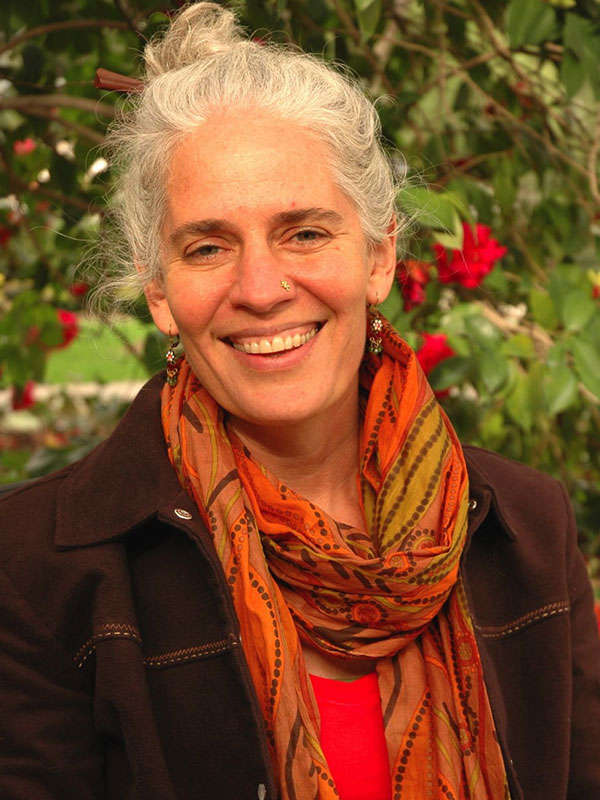Many anthropologists end their careers by reflecting on their fieldwork. Susan is perhaps unique in that she began her career with a frank, deeply moving, and for its time, risky account of an aspect of her own fieldwork in India. In 1995, while still in graduate school at the University of Chicago, she published an article titled “Paradoxes of Visibility in the Field: Rites of Queer Passage in Anthropology” in the prominent journal Public Culture. The piece made a mark for many reasons, not least among them Susan’s open acknowledgment of her queer identity alongside her reflections on the ways that women in India would develop intensely homosocial relationships with each other even as the category lesbian was not, at the time, societally recognized. This early article allowed her to reflect on the power entailed in naming (and in not naming) a social formation. Perhaps more importantly, it opened up new conversations in the field, serving as a courageous example for future LBGTQ ethnographers, to whom it offered both inspiration and a measure of methodological guidance. Few anthropologists see their very first publication become so influential.
Susan’s reflections in that early piece came out of her extended ethnographic research in South India, where she was working with theater artists engaged in bawdy improvisational comedy – an art form looked down on by the larger society. She was drawn to engage with the ways these artists, in particular the actresses, used humor and linguistic play to address the various forms of social stigma they faced. She traveled with them from place to place, observing their performances while also doing what I call the “deep hang” style of fieldwork that yields rich, beautifully textured analyses. Her book Stigmas of the Tamil Stage: An Ethnography of Special Drama Artists in South India, was published by Duke University Press, won the prestigious A.K. Coomaraswamy Book Prize in 2007, and was subsequently reissued by Seagull Press in India, reflecting her commitment to making her work available to Indian publics.
The intertwined issues of humor, laughter, and stigma would go on to infuse Susan’s subsequent major project – an ethnography of road comics in the Midwestern United States. I can unequivocally say that Susan is responsible for a large share of the belly laughs I’ve gotten to enjoy over the past decade, because as part of her road comics project, Susan brought us the wonderful comedian Stewart Huff! For this research, she took to the road with three comedians, watching them perform and speaking with them in depth about their work. To bring the research alive and make it accessible to a range of audiences, she made the decision to produce a documentary film – bucking the academic tendency to view print culture as the primary measure of success. Her 2012 film Road Comics: Big Work on Small Stages follows the road lives of three stand-up comics working right here in the Midwest. In the ethnographic spirit that informs all her research, Seizer focused on comics who have worked in some of the more off-beat, out of the mainstream spaces – those spaces in which stand-up comedy flourishes in Middle America outside the gaze of scholars, journalists, and critics. (If you have not seen Stewart Huff perform, you owe yourself this pleasure.) In subsequent pieces, Susan would take up questions of bigotry, obscenity, joking, domestic violence, and gender, always managing to strike a compelling balance between textured ethnography and her own personalized and deeply human writerly voice. Her work has appeared in venues including American Ethnologist, Cultural Anthropology, Anthropological Quarterly, and the Journal of Humor Research, among others.
Across all of Susan’s research, we also see her commitment to cultivating ongoing relationships with her interlocutors. Prior to the pandemic, she had begun a second project with the next generation of Special Drama artists in India, working with the children of her initial interlocutors in a relationship spanning three decades (her 2016 essay “Heredity Abandoned: Kannagi’s Courageous Decision to Act in Special Drama” came out of this return fieldwork in Tamilnadu). To this end, she convened a conference at Indiana University titled “Love, Money and Reciprocity in Long-Term Ethnographic Relationships,” that brought together experts from around the country last year (albeit via zoom). She continues to work on an ethnographic memoir of this relationship.
Teaching has been an equally vibrant part of Susan’s trajectory. As Director of Undergraduate Study, I can say that Susan has been a prolific creator of new and compelling courses that beautifully integrate her teaching with her research interests. Her fortunate students have benefitted over the years from her signature course on Stigma, which speaks to the ways marked categories of persons are culturally created, socially maintained, and hopefully also transformed and/or transcended. Another popular course she developed in the wake of the road comics project was “Humor in Use,” where she explored with students how humor could help to navigate complex social issues that could not be as easily addressed outside of comedy. In her course “India Lost & Found: Diasporic South Asian Feminist Filmmakers,” she introduced IU students to prominent films and filmmakers that they otherwise would never have encountered. Most recently, Susan developed a fascinating new course on ethnographic memoir, again bringing her recent research directly into the classroom.
It is no exaggeration to say that Susan is beloved among her students and her colleagues. We have all drawn inspiration from her intellectual vision as well as from her active engagement in helping to build a collegial and generous community, whether in the classroom, around a seminar table, at a faculty meeting, or at the Bloomington Faculty Council, on which she served for a number of years.
Susan, I will miss you, we will miss you, but we send you off into retirement with our warmest wishes for many more years of creative work unmoored from the constraints of the institution. Thank you!
—Jane Goodman

 The College of Arts
The College of Arts